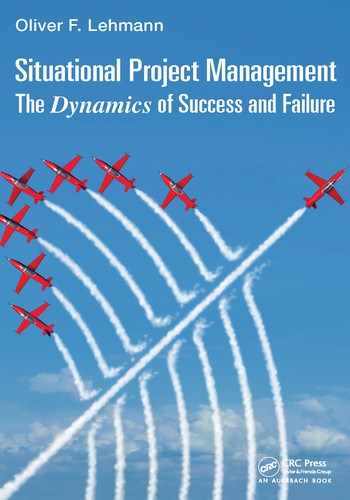Appendix D
Twelve Suggestions for Situational Project Managers
Project management is an open-skill discipline, not a closed-skill one: As a project manager, you have to respond situationally to the complex dynamics of success and failure.
There are no “best practices” in project management: The same practice that was successful in one project or project situation may fail in another one.
A fundamental feature of a project manager should be realism, which means navigating between the two monsters of “easy” and “panic”.
The principal project resource is management attention. Having it does not guarantee the availability of resources, but without it, other resources will also be scarce.
Ignore stakeholders, and they will come back and bring friends, lawyers, and press with them. Turn them into Bands of Brothers and Sisters, and they will sort out your problems.
Actively identify, analyze, and manage assumptions to make sure that preconceptions never trump logic.
Actively manage risks by developing reserves. A project manager without reserves is a feeble observer of critical events.
The question, “What is the matrix today in my project?” is among the most important, as the answer may not be the same as yesterday.
Remain aware of planning horizons by asking yourself now and again how much prediction your project allows for, and how much it needs.
Avoid complacency and take care of the seemingly marginal details that make the project different to others and can possibly derail it.
Develop situational intelligence and become comfortable with a wide range of achieving styles, tools, and techniques to adjust to the specific project or project situation.
When you adjust your practices to changing situations, avoid the perception of jumpiness, lack of authenticity, or erraticism.
